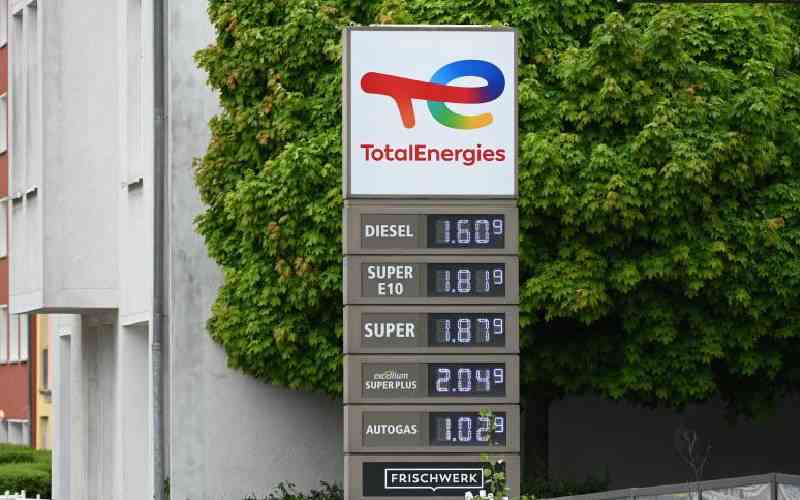Poorly managed govt landfills, illegal dumpsites compound lagos 'smelling' narrative
John, a first time visitor to Lagos, alighted at Ojota on his way to Isolo; he was embarrassed by the massive stench that welcomed him. He didn’t believe that the slum was a common feature in the state.
He called his host trying to explain what he just saw.
“Welcome to Lagos,” his host said.
“Welcome to Lagos?” He asked.
“Yes, you will definitely see more.”
“See more?” He wondered, as he took another vehicle going to Oshodi.
Living in Lagos could be terrorising John imagined as he approached Oke-Afa, where he saw another dumpsite.
Residents have to battle with stench oozing out of both state managed dumpsites and illegal ones dotting different parts of the state.
This could be more challenging for those living within the locations, as well as commuters and motorists plying the route bearing the brunt.
These sites emit not only noxious odours, according to researchers, but also attract disease vectors, and contaminate local water sources, contributing to the city’s reputation for pervasive unpleasant smells.
From Olusosun Dumpsite where residents of Ketu, Ojota and its environ as well as passersby daily take in the disgusting odour emanating from the landfill to the three Solous dumpsites along the Igando corridor in Alimosho Local Council, where the dumpsites intermittently give inhabitants and members of the public varied stinking smell to grapple with all day round.
The story is not different from the Oke Afa and Abule-Egba dumpsites and other state owned landfills.
But just as the state government has failed to properly manage the legal dumpsites; it has left the illegal dumpsites unchecked with many of them thriving for more than a decade now.
However, while the legal dumpsites managed by government are not scattered across the state, the illegal dumpsites dot different parts of the state. So, from Orile to Ijora, Iddo, Mosalasi, Agboju, Oluti, Alakija, Abule-Ado, Berger Suya, Anthony, Cele to Badia and Itumara, there are spots with heaps of refuse dumped there and mainly fed by cart pushers.
And these different illegal dumpsites similarly push out foul odour into their immediate locations and communities around them, with persons passing through the corridor not speared the pollution. Yet in many instances, metres away from these dumpsites, legal and illegal, are not only residential buildings but also schools, offices and healthcare centres. For instance, the Alimosho General Hospital is close to one of the solous dumpsites.
And it is not that the state government is unaware of the illegal dumpsites. This is because a former Managing Director of Lagos State Waste Management Authority (LAWMA), Ibrahim Odumboni, once said that there are no fewer than 42 unapproved dumpsites in the Amuwo-Odofin area of the state.
Odumboni noted that despite cart pushers and illegal dumping of refuse being outlawed in the 2017 environmental law, the agency has witnessed an increase in the number of cart pushers over the years, resulting in a high number of illegal dumpsites all around.
“There is a big menace around Mile 2 to Iyana-Iba,” he stated, adding that other areas within the state with illegal dumpsites include Ikeja, Abule Egba, Oyingbo, Kantangua Market, Badore-Ajah, Mile 2, Iyana Iba, and a few others.
Although it is about two years now that Odumboni was sacked as MD of LAWMA not much has changed in terms of the number of unapproved dumpsites across the state.
Yet the law that made it illegal for cart pushers to collect waste and patronise illegal dumpsites gave the Lagos State Waste Management Agency (LAWMA) the statutory responsibility to collect waste and dispose them at designated landfills.
LAWMA does this through its numerous Private Sector Participation (PSP) operators working across the state including its own waste collection trucks.
Specifically, Section 63 (1) of the Lagos State Environmental Management and Protection Law 2017 made it illegal to operate any waste collection, transportation, recycling, and disposal business without a license issued by an agent of the state government.
Aside from Section 63 (1) of the law, Section 81 of the law also prohibits the collection and disposal of waste in a way that has an adverse effect on the environment.
An item on Section 81 stated: “A person shall not treat, keep or dispose of controlled waste in a manner likely to cause pollution of the environment or harm to human health.”
That section stipulated a N50,000 fine with two years imprisonment for persons who contravene the law .
Ironically, despite the provisions of the law, cart pushers have continued to operate unabated in different parts of the state, with almost all the cart pushers emptying their content in unapproved dumpsites, thereby, instigating environmental hazards on the community with its negative health implication on the residents.
In some of the dumpsites, the outer part of the site looks like a recycling point. This is because different recyclable items are separated and heaped at different locations within the site.
But behind those recyclable items are remnants of burnt or huge refuse about to be burnt, which compound the air pollution crisis.
It was learnt that at late night, managers of these unapproved dumpsites burn whatever is left after recyclable items have been removed from the waste collected from homes by cart pushers.
In places like Anthony, Cele, Orile, and Ijora aside some of the waste being burnt, some are used to reclaim the swampy spots within the area.
But six years into the Sanwo-Olu administration, illegal dumpsites are still sprouting up while cart pushers who are collecting dirt from homes are experiencing a business boom.
Surprisingly, while Lagos State law prohibits the activities of cart pushers and people who patronise them, some residents said they prefer the outlawed cart pushers because of easy access to the cart pushers, whose charges are also flexible.
They also said they prefer the cart pushers because of the inefficiency of the LAWMA PSP operators.
Also worthy of mention is that in some of the dumpsites, cart pushers pay to empty their waste in the sites.
A resident of Lanre, Bayo Ademola, said the ever-present stench becomes overwhelming during the rainy and hot seasons.
He stated that the no nonsense Commissioner for Environment would have closed down the dumpsites, calling out the managers or owners if they were privately owned.
“Yet, the man that has been demolishing houses has been in the saddle for about two years now, it has been one promise to another, maybe he will stop the smell when he leaves office.”
Also speaking, a resident of Ikosi-Ketu, Motunrayo Abioye said that the smell from the Olusosun dumpsite is usually very thick.
“I think we are used to it at this point. But in the midnight, even inside the rooms, the smell is stronger. Sometimes, it even wakes me up from sleep. Even in the market within the area, our water smells. We can’t use it sometimes because of the odour probably contaminated by the dumpsite,” Abioye stated.
Innocent Madu said that the stench from the dumpsite is unbearable. “The water is also unclean. The situation is worse whenever it rains. Eating when there is stench is as good as eating poison because the stench you will be swallowing instead of good taste of the food,” Madu stated.
Several researches revealed that these dumpsites whether legal or illegal emit various pollutants, including particulate matter (PM2.5), nitrogen dioxide (NO₂), sulfur dioxide (SO₂), and carbon monoxide (CO), which pose health risks to nearby residents.
A research published in 2024 by Samson Olugbenga Daramola and Esther Oluwafunmilayo Makinde, scholars at the University of Lagos, revealed that air pollution level at Olusosun and Solous is high.
Supporting the research with data, it stated that at Olusosun, the average PM2.5 level of air pollution is 94.29 µg/m³, and at Solous, it’s 94.12 µg/m³ over a 24-hour period. Both values, they said exceed the World Health Organisation’s (WHO) recommended limit of 15 µg/m³.
According to the World Health Organisation (WHO), outdoor air pollution in both cities and rural areas was estimated to cause 4.2 million premature deaths worldwide per year in 2019; this mortality is due to exposure to fine particulate matter, which causes cardiovascular and respiratory disease, and cancers.
During the week, Lagos State Commissioner for Environment and Water Resources, Mr. Tokunbo Wahab, addressed the press, where he said stiff penalties of about N250,000 fine or up three months imprisonment awaits anyone caught dumping refuse illegally or littering the environment as stated under the Lagos Sanitation Environmental Law provisions, insisting that serial offenders will face stiffer punishments.
According to him, the government has arrested over 3,000 environmental offenders and prosecuted them, maintain that the government will not stop arresting and prosecuting. He implored residents and business organisations to patronize only approved and assigned PSP operators. “If PSP operator fails to collect your waste, report such operators immediately to LAWMA.
“Let me reiterate that the ban on cart pushers has not been lifted because they are the ones that dump wastes indiscriminately across the state; as such residents should desist from patronizing them and always patronise registered PSP operator,” he stated.












